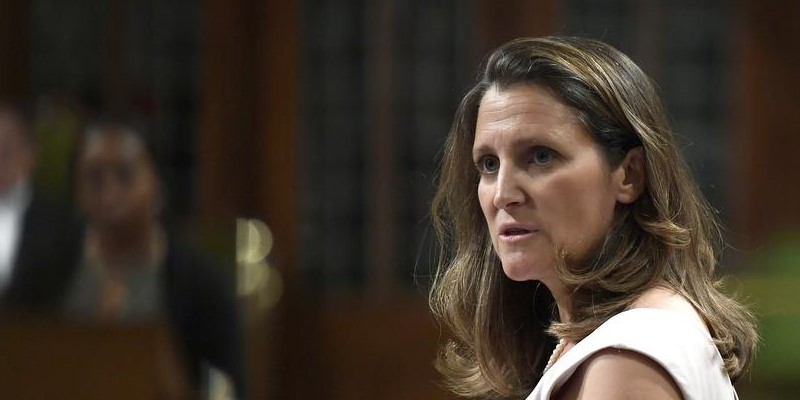Politicians should leave monetary policy to the Bank of Canada

Last month, before the Bank of Canada’s interest-rate decision, British Columbia Premier David Eby and Ontario Premier Doug Ford warned against further rate increases. After the bank’s decision to leave its policy rate unchanged, federal Finance Minister Chrystia Freeland expressed “relief.”
While the effects of increased rate hikes are felt by households and firms across Canada, such remarks from politicians compromise the operational independence of the bank.
In response, Bank of Canada Governor Tiff Macklem sent a letter to premiers, warning them about the impact of their comments. Yet even after that letter, Ford said publicly “there is simply no excuse” for raising interest rates. One would hope that these elected politicians heed Macklem’s words when the bank makes its next rate decision on Wednesday.
As the Canadian economy recovered rapidly from the worst of the COVID-19 pandemic, the Bank of Canada began increasing its policy rate in March 2022 to dampen demand and stem rising inflationary pressure. Annual inflation (based on the Consumer Price Index) peaked at 8.1 per cent in June 2022, well above the bank’s 2 per cent target.
Most of the dramatic rise in inflation in 2021 and 2022 was caused by external forces, namely the spike in global goods and commodity prices owing to the combined effects of the pandemic and Russia’s invasion of Ukraine. The bank, however, assessed that the Canadian economy was operating in a state of excess demand and it was necessary to begin raising the policy rate.
During this tightening phase, the bank increased its policy rate from 0.25 per cent to 4.5 per cent in January 2023, then took a pause for two monetary policy decisions to allow time to assess the impact of the sharp climb in interest rates and the continuing runoff of its holdings of Canadian government bonds. Given the resilience of demand and the persistence of inflation, the bank resumed raising the policy rate in June and it reached 5 per cent in July 2023.
The commentary by politicians, including Freeland, about the bank’s September decision puts unwarranted political pressure on the bank to not raise its policy rate further, even if it feels increases are necessary to achieve its 2 per cent inflation target.
Of course, the large increase in the bank’s policy rate has contributed, along with rising global interest rates, to higher mortgage and household borrowing rates. This rise has, in turn, made it costlier for Canadians to purchase houses and service their mortgages and other debt (depending on their terms). Higher rates also reduce debt-financed business investment. But while this rise in interest rates may cause hardship to some households and firms, all will eventually benefit by having lower and more stable inflation, as the economy will function more efficiently and achieve sustainable maximum employment.
Every five years, the Bank of Canada works with the federal government to review and renew the bank’s monetary policy framework and mandate. Such a process is appropriate in a democratic society and has worked well for 30 years. This uniquely Canadian approach has been emulated by the U.S. Federal Reserve, the European Central Bank and the Reserve Bank of New Zealand, because it allows various stakeholders—including government, the public, financial market participants and other experts—to contribute to the process in an open and transparent manner.
The most recent renewal in Canada was in 2021, and the joint statement from the bank and the Trudeau government reaffirmed that the primary objective of monetary policy is to achieve the 2 per cent inflation target, and that the bank has the operational independence to achieve its mandate. The joint statement also said that achieving the inflation target and promoting maximum sustainable employment is a joint responsibility of the government of Canada and Bank of Canada.
Given this review and renewal process, and the joint statement on the bank’s monetary policy framework, it’s incumbent on politicians, especially those party to the agreement, to respect its terms by eschewing commentary that could be interpreted as attempting to influence the conduct of monetary policy. In other words, while politicians may be well-meaning, they should stay in their lane and let the bank do its job.
Minister Freeland may also want to reflect on the government’s joint responsibility to achieve the inflation target as she develops the federal fall economic statement and considers new spending initiatives that will boost demand—but also fuel inflation.
Author:
Subscribe to the Fraser Institute
Get the latest news from the Fraser Institute on the latest research studies, news and events.

